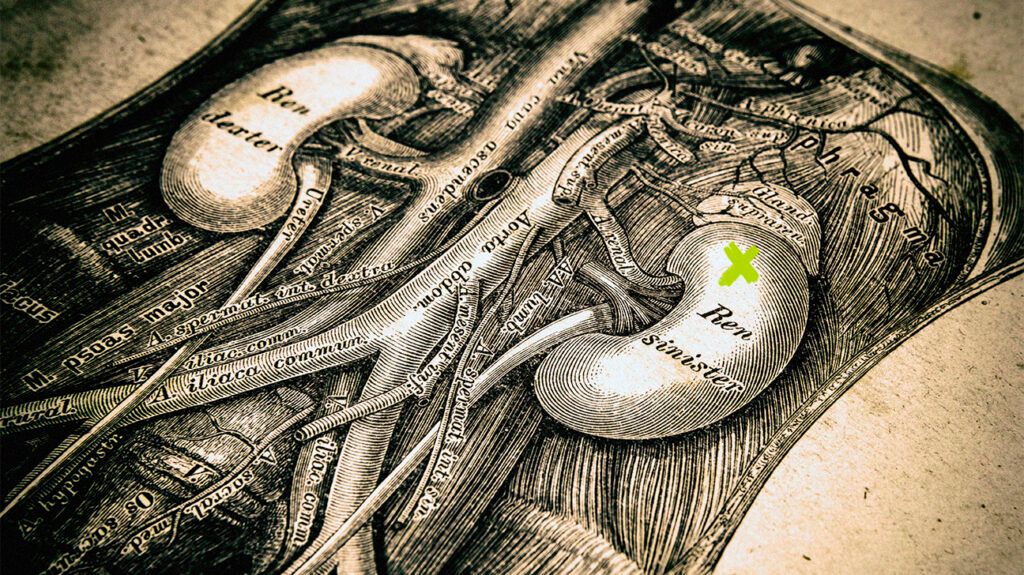
- The number of people experiencing kidney stones is growing worldwide.
- This number is expected to grow due to an increase in diseases that can raise a person’s kidney stone risk, such as obesity or type 2 diabetes.
- Researchers have found that SGLT2 inhibitors — which are used to treat type 2 diabetes — may help lower a person’s risk of developing kidney stones.
As of 2019, there were more than 115 million cases of kidney stones around the world.
Medically known as nephrolithiasis, kidney stones are mineral deposits that form in the kidneys that are too large to easily pass through the urinary tract.
Previous research shows the
Now, researchers from Brigham and Women’s Hospital and Massachusetts General Hospital have found that a type of medication called sodium-glucose contratransporter 2 (SGLT2) inhibitors used to treat type 2 diabetes may help lower a person’s risk of developing kidney stones.
The study was recently published in the journal
SGLT2 inhibitors are a newer class of medications used to help manage blood sugar levels in people with type 2 diabetes.
Taken orally, the medication stops glucose in the blood that is filtered through the kidneys from being reabsorbed by the body. This causes the extra blood sugar to leave the body through urine, lowering blood sugar levels.
Sometimes SGLT2 inhibitors are also prescribed for treating
Past studies have linked SGLT2 inhibitor use to
Dr. Julie Paik, associate professor of medicine in the Division of Pharmacoepidemiology and Pharmacoeconomics and the Division of Renal (Kidney) Medicine at Brigham and Women’s Hospital in Boston, MA, and corresponding author of this study, said her research group decided to examine SGLT2 inhibitors as a possible way to lower kidney stone risk because they had already been studying this newer class of diabetes medications for several years.
“We became interested in studying the association between the use of this class of drugs and (the) risk of kidney stones based on what we had been seeing clinically with the use of this medication class, our current understanding of the pathophysiology of this drug class, and prior studies, albeit limited,” Dr. Paik told Medical News Today.
“Kidney stones are common, and in addition to being quite painful, they can cause kidney damage and increase the risk of other sequelae, like
“It’s unclear why rates are on the rise, but some possible factors could be the rising rate of obesity,
For this study, Dr. Paik and her team analyzed data from more than 716,000 adults with type 2 diabetes who had started taking either an SGLT2 inhibitor or two other classes of diabetes medications — glucagon-like peptide-1 receptor (GLP1 receptor) agonists and
Upon analysis, scientists found that people who began taking SGLT2 inhibitors had a 31% decreased risk of developing kidney stones compared to those taking GLP1-receptor agonists and a 25% lower risk than people taking DPP4 inhibitors.
Researchers report that the findings were consistent across sex, race/ethnicity, history of chronic kidney disease, and obesity.
“While we found a lower risk of kidney stones in our study, we don’t fully understand how they lower the risk,” Dr. Paik said. “While we provide some potential explanations in our study, it remains to be studied further. We will continue to investigate the role of these newer classes of drugs and health outcomes.”
After reviewing this research, Dr. Jennifer Cheng, section chief of endocrinology at Hackensack Meridian Jersey Shore University Medical Center in New Jersey, told MNT that this study is promising in helping doctors decide what medications to recommend to their diabetes patients.
“This can be helpful for patients with type 2 diabetes and renal stones, which can reduce (the) risks of renal stones and prevent hospitalizations,” Dr. Cheng continued. “It is helpful for patients to reduce their risk for nephrolithiasis, as it is a cause of significant pain and discomfort for patients.”
“This could be another good reason to prescribe the SGLT2 class of medications and for patients to inquire about if they have had renal stones in the past,” she added. “Implementing a new way of lowering renal stone risk is always helpful, especially in patients who do not have other options.”
Dr. Cheng said that thorough research can be done using larger studies to determine if there are significant differences between the different SGLT2 class of medications and if there are reproducible studies showing a reduction in renal stones.
“Physicians also often recommend when people are prescribed SGLT2 class medications, that patients drink enough fluids and that may also contribute to the reduction of stones. We would like to see if it is an effect of the medication or the increased fluid intake that occurs.”
— Dr. Jennifer Cheng
Dr. Cheng said there are several things that predispose patients to getting kidney stones, including obesity,
“Unfortunately, the obesity epidemic has only increased the risk of patients having renal stones,” she continued.
“Certain food choices, such as too much sugar and too much salt increase the risk of renal stones. It has been found that too much
fructose also increases (the) risk of developing kidney stones as well.”
— Dr. Jennifer Cheng
“Not drinking enough water also may increase the risk of renal stones. People are so busy sometimes that they don’t always remember to drink enough. The older you are, the less thirst mechanism you have, and therefore you drink less,” Dr. Cheng added.